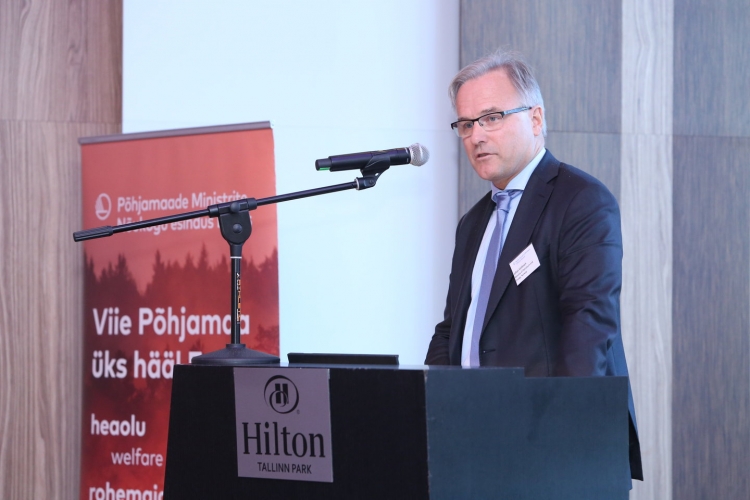The conference has been a timely event. The regulation on governance requires, as we have heard, regional consultations with neighboring countries.
With the conference, we tried to address how governments and businesses respond and implement, having in mind that it is not possible to cover all aspects of the EU Energy Union and Clean Energy Package in one and a half day.
As a member of the Nordic Council of Ministers Senior Energy Officials Committee, I must say that we are very satisfied with the outcome.
As neighbors, I find it very logic that the Nordic and Baltic countries exchange views also in the implementation phase on key matters. This goes for both the dialogue between governments and businesses.
I think we had very good presentations of DG ENER and IEA on the European and global perspectives. One impression is that both the Nordic and Baltic countries are in the forefront along most of the dimensions of governance and energy union. Jean Arnold Vinois put the EU energy policy process and perspectives into understandable language and historical perspective.
It has become more and more important to have an overview of technology scenarios and drivers in the future energy system. However, the debate told us that we should not exclude surprises and lock in technology choices for the future.
We confirmed that work on implementation and drafting of plans are underway. Thank you to the selected countries and governments for sharing the insights also with this audience. This was very valuable and definitely something, that could be repeated.
It is evident that reaching the new targets will require efforts from the business and the markets. The business viewpoints were very welcome yesterday. Policy frameworks and business cases should interact. On the second day, we selected the dimensions in governance and energy union as the organizing criteria for the debate. Challenges in each of these dimensions were addressed. Even if this meant a variety of topics, from electricity de-synchronization challenges in the Baltics to innovations in technology we had five very interesting interventions. It also illustrated how wide in scope the EU dimensions are.
In the last session, we learnt that Nordic Energy Research has progressed on their cooperation with the Baltics in R&D and innovations. Stronger cooperation between the Nordic and Baltic countries is being formalized straight after this conference by the signing of a new Moue between Nordic Energy Research and the Baltic governments.
Finally yet importantly, we also had an impressive input from the local level and the city of Tartu. Without involvement of the market and local level targets will not be reached.
To the overall question on "How the Energy Unions targets can be reached", we have at least succeeded to present some ways and means these two days. There are at least two fundamental preconditions. Firstly, governments, businesses and markets have to work together. Secondly, regional cooperation on all levels is necessary. Our polls did support the belief that the targets will be reached.
Thanks to the office of NCM or facilitating this conference.
Thanks to moderators, speakers and the good audience for the fruitful debate. Thanks to the Ministry in Estonia who also played a role in planning.
We will now discuss internally in the Nordic energy cooperation and with our Baltic neighbors the next steps for a 2019 conference.
Thanks for the attention."

